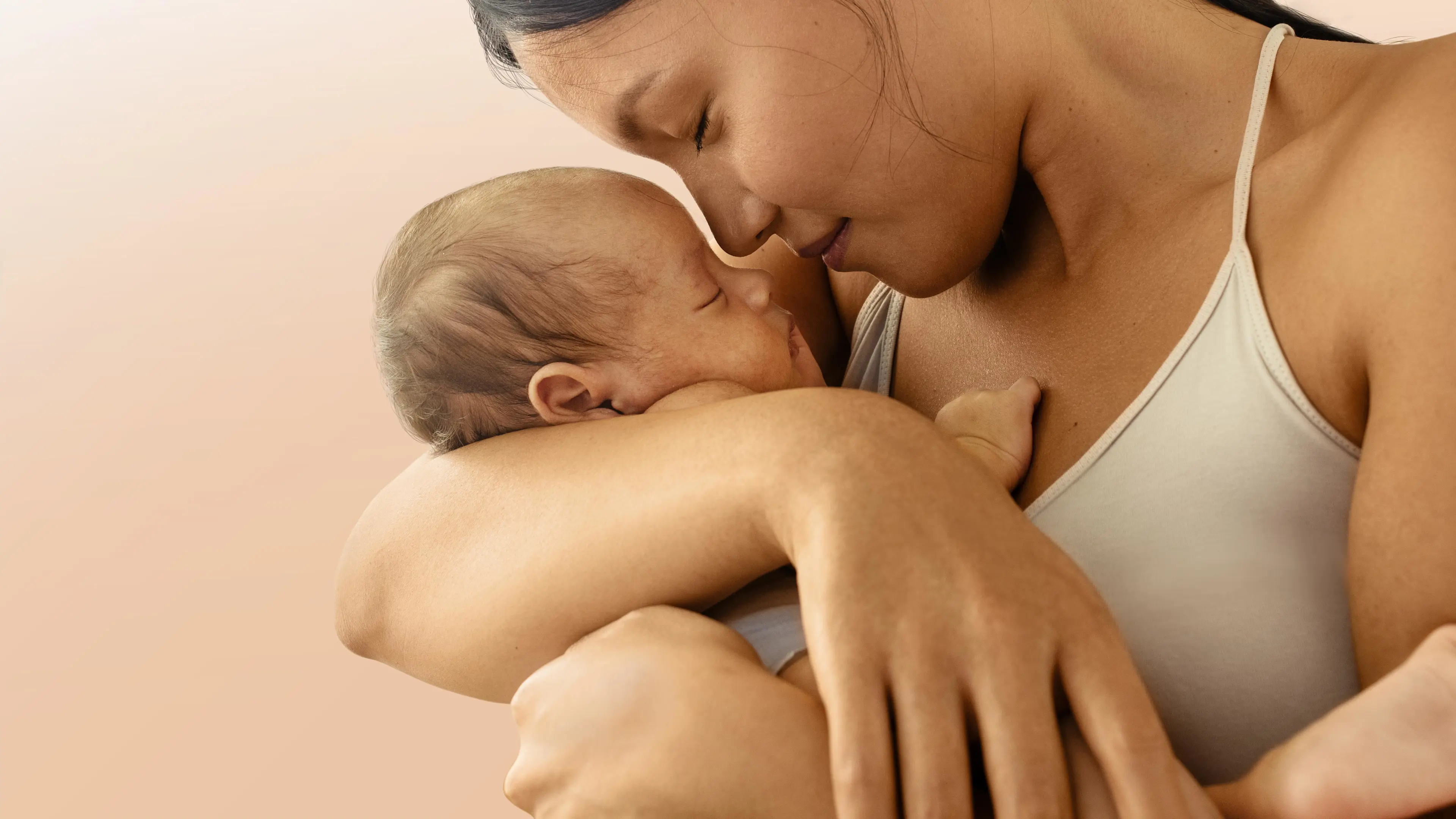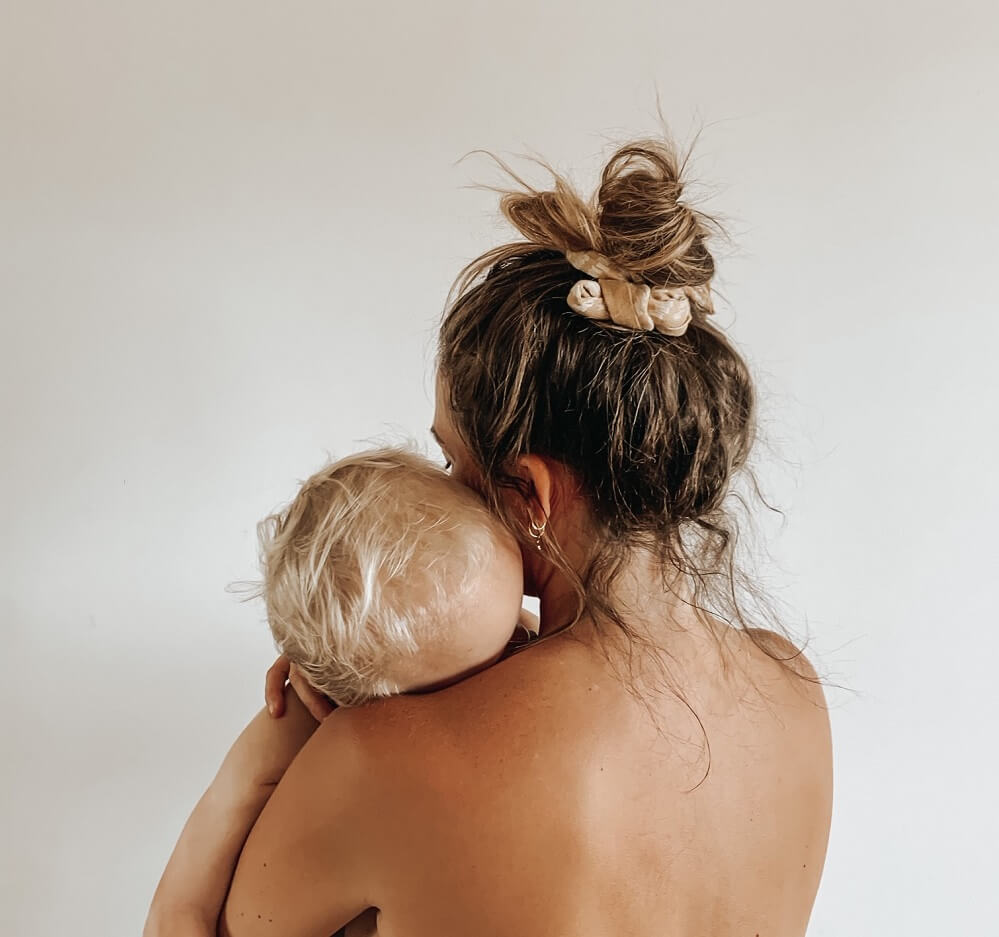
Atopic or allergic eczema is thought to affect up to one in five children, with about 60 per cent of cases starting under the age of one. A third of children affected may also develop asthma or hayfever, or both. Reassuringly, many children fully grow out of eczema later.
In the meantime, if your baby’s skin is eczema-prone or they’re suffering from sore, itchy eczema patches, here’s what you need to know.
KNOW WHAT CAUSES ECZEMA IN BABIES
Many factors can compromise the skin, the body’s natural protective barrier. Contact with soaps, detergents or exposure to allergens such as dust mites, pollen, pet dander and certain foods can all play a part.
Eczema may also worsen with a cold or infection, as the body’s natural immune responses may be overstimulated, leading to a flare-up. This makes the baby irritable, causing the family to worry. Eczema is certainly not infectious but can run in families as there is often a genetic component.
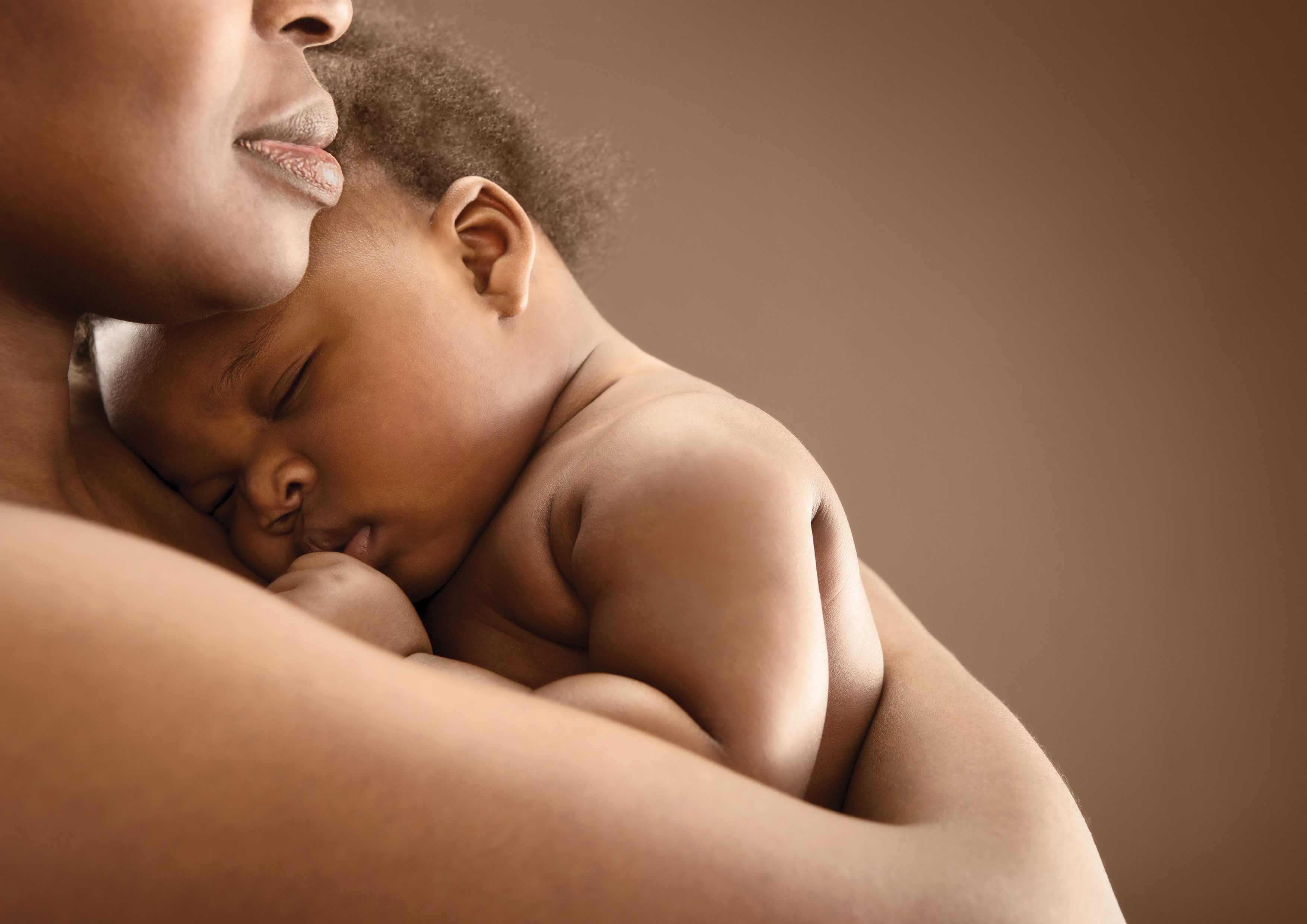
LEARN HOW TO SPOT ECZEMA AND ITS SEVERITY
Eczema patches can commonly appear on cheeks and areas where the body bends (inside elbows, behind knees, skin creases). In darker-skinned children eczema might appear more around the fronts of knees and elbows, or be seen more as circles (discoid eczema) or around the hairline or scalp.When your healthcare or medical professional examines and diagnoses your baby’s skin, they will ask how it affects you and your baby’s daily life, sleep and play. Family history and any possibility of food allergies should be mentioned.A doctor may also check for signs of bacterial infection (oozing, weeping, pustules, crusting) that might need antibiotic treatment or cream. Although rare, eczema can also be infected with the cold sore virus (look for blistered or ulcerated skin) and if so, will need special treatment, so keep babies away from any contact with cold sores.
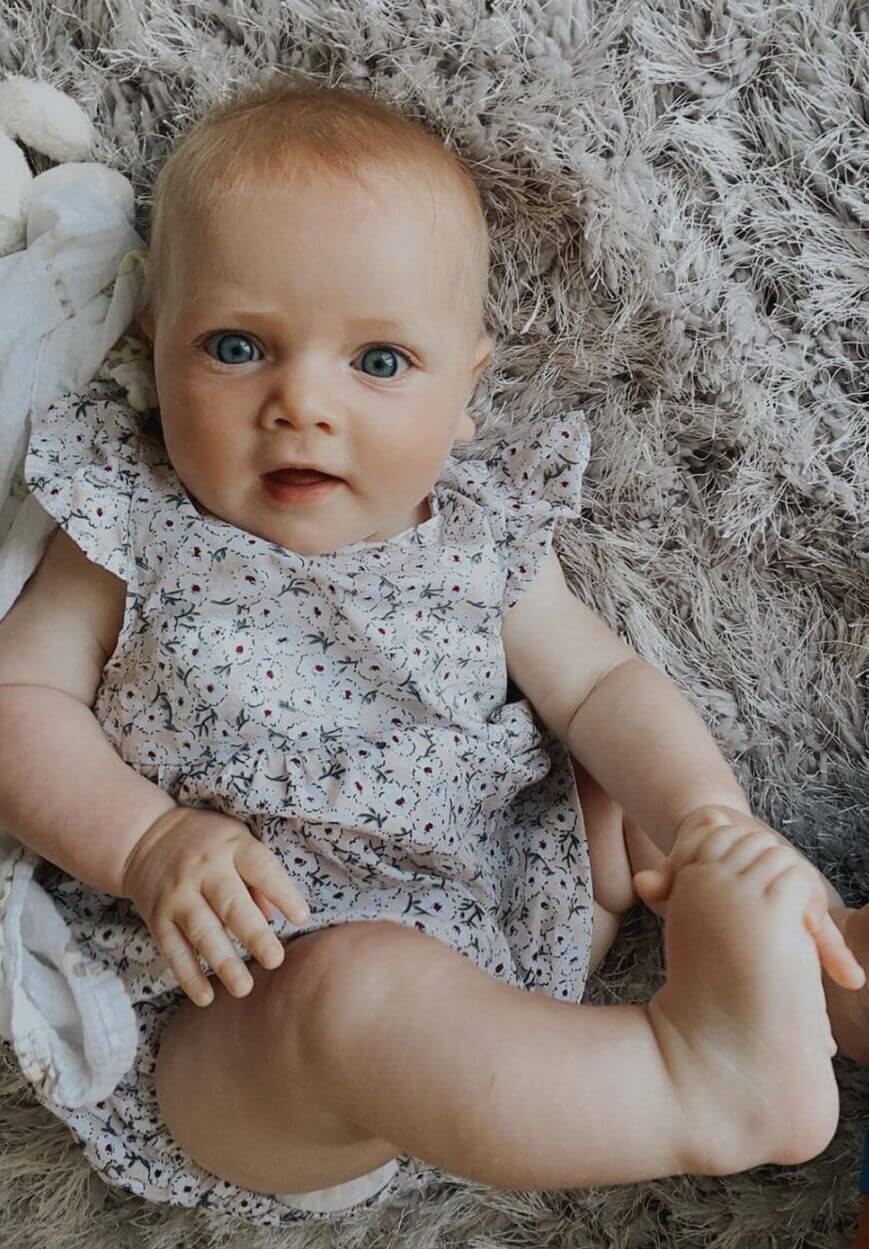
PREP YOUR ENVIRONMENT SUITABLY
Dress your baby in comfortable, cotton clothing (not wool or nylon) and avoid overheating in warm environments. Avoid soaps, perfumed products, biological detergents or strong bubble baths, as these may contain preservatives that are drying on skin. They might also contain strong surfactants, which foam up nicely but potentially strip some of the skin’s protective moisture as they remove dirt and grease.
Keep the baby’s nails short and cover hands at night with tiny socks if needed to avoid them scratching themselves. Reducing direct pet contact may help with avoiding animal dander if this makes your baby’s eczema worse. And make sure not to let anyone smoke near the baby – this not only worsens eczema but is also detrimental to their overall health.
SEEK ADVICE BEFORE ADJUSTING BABY’S DIET
Do not cut out essential foods such as milk and dairy, wheat or eggs when weaning or in older babies unless a health or medical professional has advised you to do so.
In worse cases, a doctor might advise a specific replacement to cow’s milk formula for younger babies. If breastfeeding, there are not enough studies to prove that changing your diet is guaranteed to help, but many women try to exclude peanuts if under medical supervision.
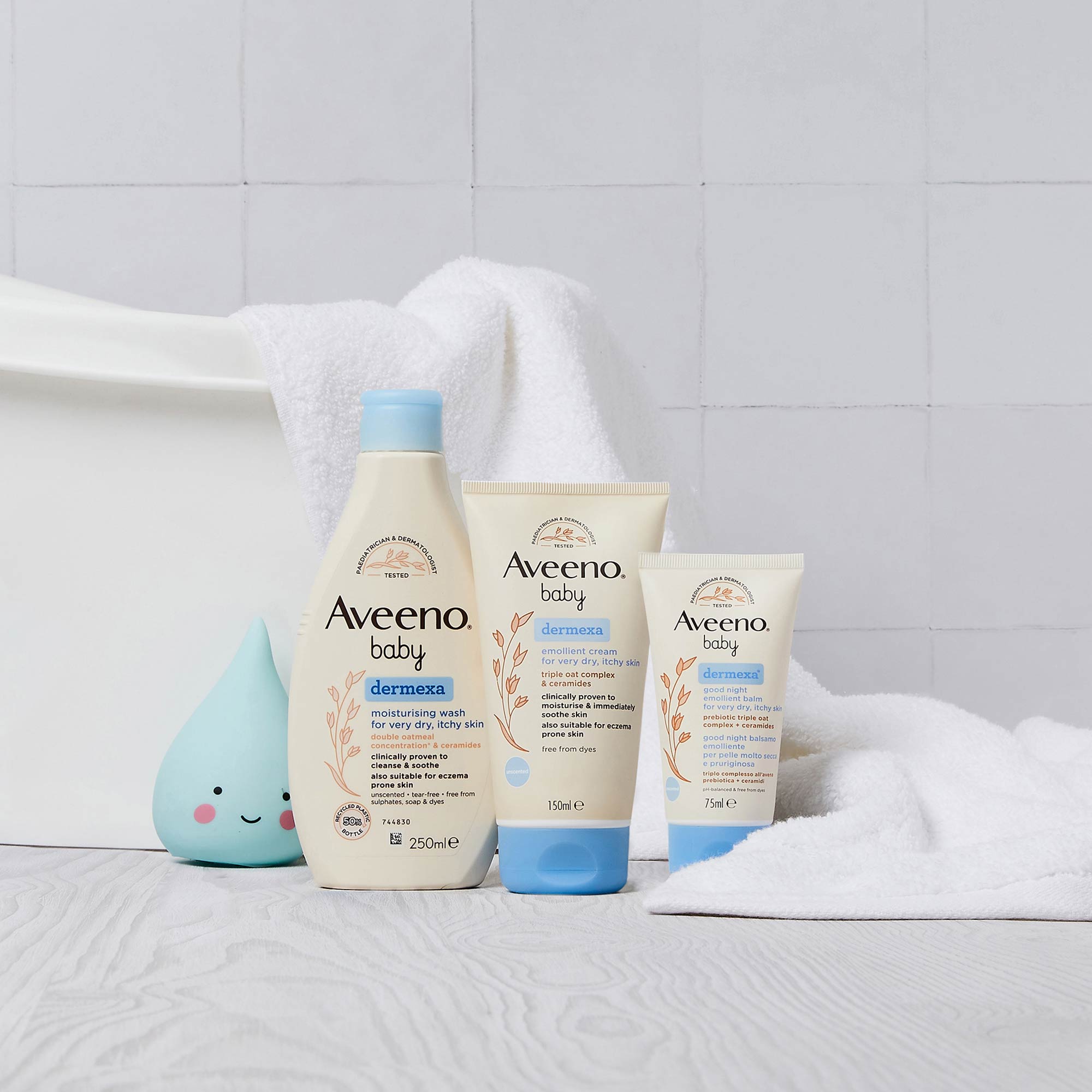
CHOOSE THE RIGHT INGREDIENTS
Oatmeal, a topical ingredient, has been used for centuries to moisturise skin as it contains large molecules that hang on to moisture. It keeps the acidity of the skin balanced and can help to reduce itching through its calming effect.
If your baby is prone to eczema the AVEENO® Baby Dermexa range has been formulated with colloidal oatmeal, oat extract and ceramides, clinically proven to soothe dry itchy, irritated skin.
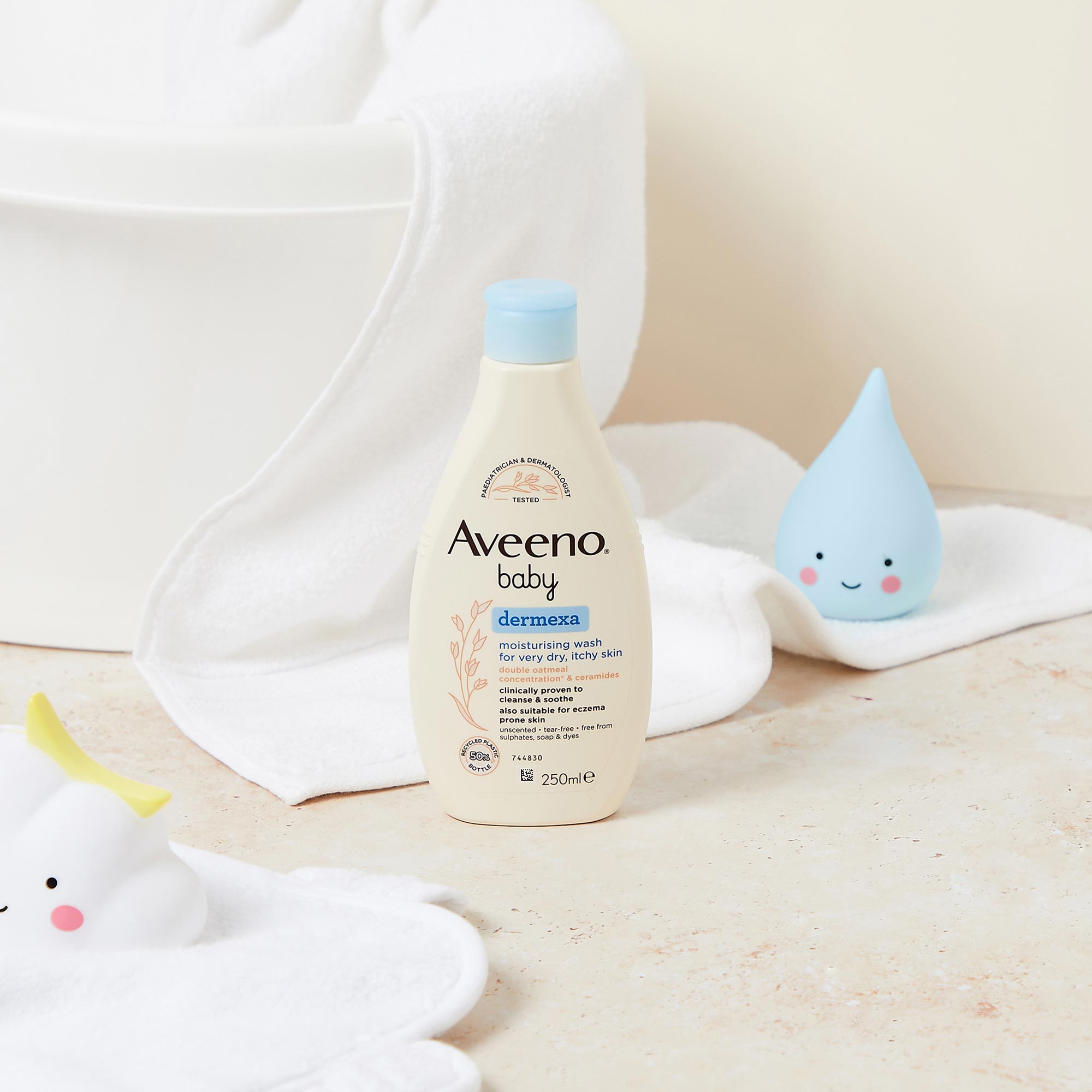
MANAGE BATHTIME WITH CARE
Use moisturising products and try to avoid over-perfumed products. AVEENO® Baby Dermexa Moisturising Wash is gentle on a baby’s skin and paraben-free. Let your baby enjoy warm water for just a few minutes in the bath or a shower, so skin won’t dry out. Always rinse thoroughly, pat all areas dry and immediately moisturise.
When dry, itchy skin is under control, bathtimes can be longer but as daily baths may worsen dry, itchy skin, bathing every two or three days is fine. Try gentle cleanses with a soft flannel or light showers in between.
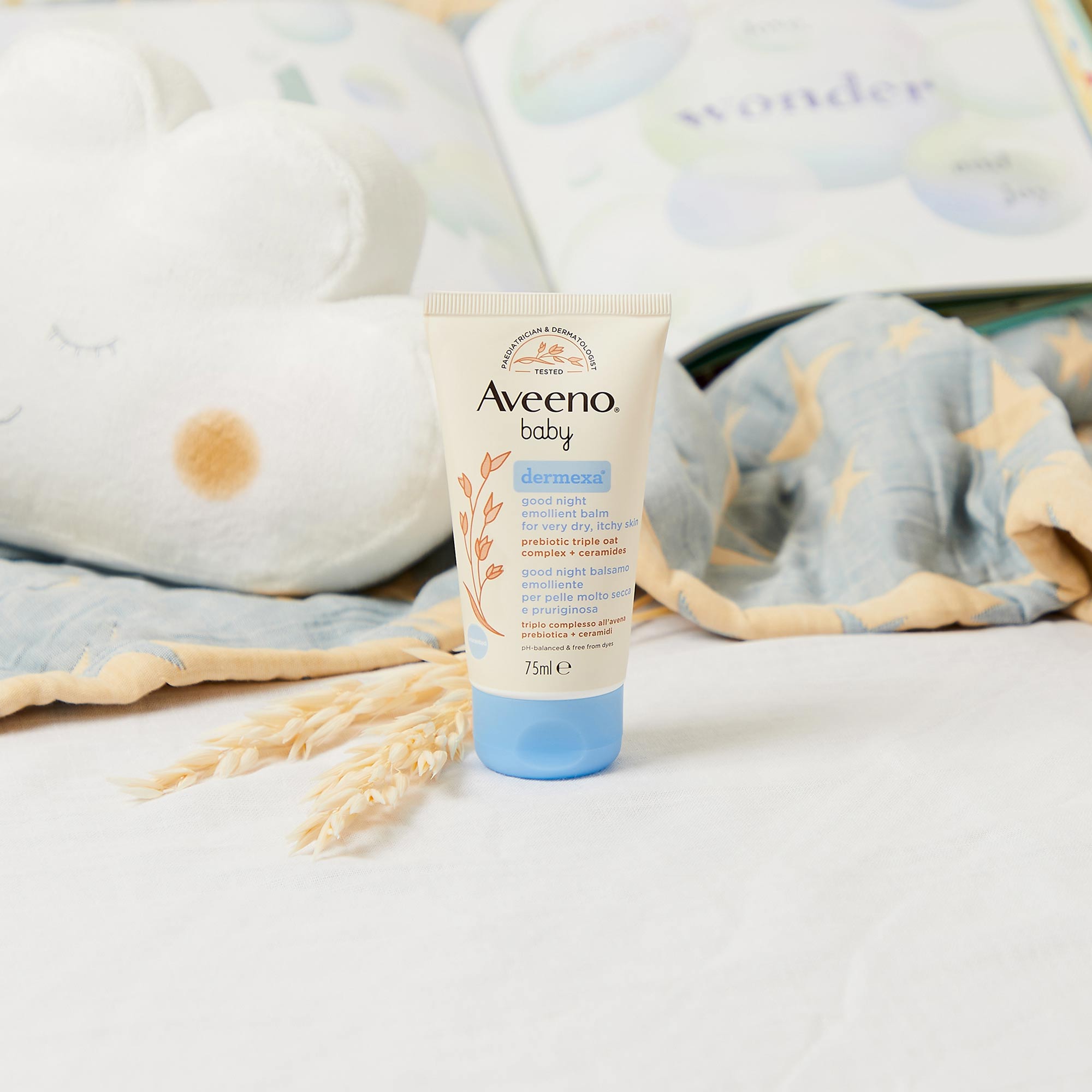
Make sure nappies and clothing are changed regularly to avoid trapped moisture and keep the skin clean. For more peaceful nighttimes, AVEENO® Baby Dermexa Good Night Emollient Balm, can help to manage dry, itchy skin and offer some relief throughout the night. It contains oat extract, oat oil and colloidal oatmeal and is clinically proven to help restore the skin's barrier.
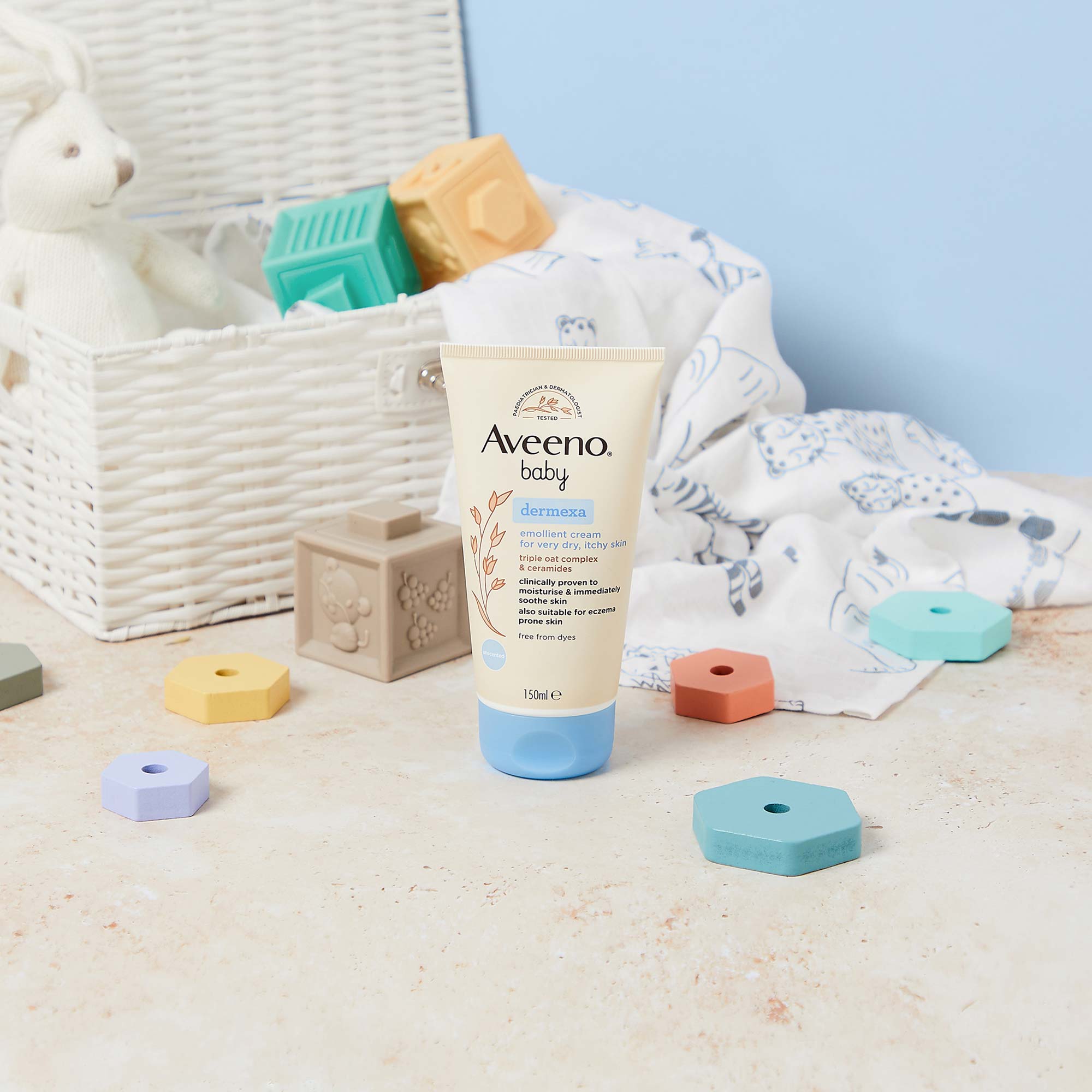
MAINTAIN BABY'S SKIN MOISTURE
Moisturise, moisturise, moisturise. This step is so important in order to protect the skin’s barrier and reduce flare-ups. Studies show that great moisturising practice can potentially reduce the need for further treatments like steroids or medicines.
Even when skin appears clear, keep moisturising. Some babies dislike the greasy feel of thick ointments, so lotions or balms may be easier. Quick-absorbing products like AVEENO® Baby Dermexa Daily Emollient Cream can restore its natural barrier.
If your baby is at nursery, make sure it has a good supply of moisturiser. Find one that doesn’t bother the baby and reapply at least two or three times a day, or at every nappy change. Apply gently, and try not to rub.
This article was originally published on NetDoctor on 21 September 2020.

